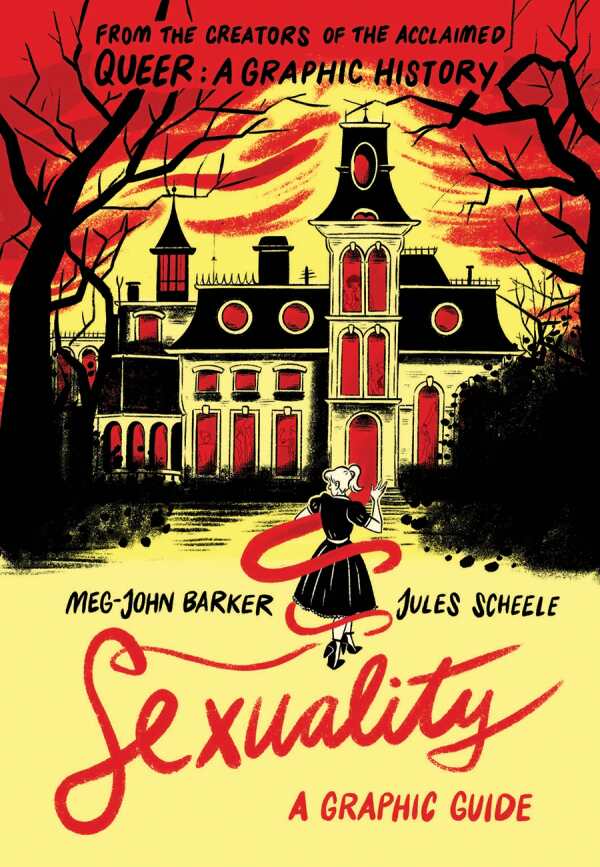Sexuality
A Graphic Guide
Cultural messages about what is “normal” or acceptable stifle variety, induce shame, and keep people from discovering their true identity, Meg-John Barker and Jules Scheele argue in Sexuality: A Graphic Guide. Blending narratives with theory, the book considers how society’s understandings of sexuality have evolved over time.
The book’s core message is that sexuality “is socially constructed,” rather than timeless and static. A whistle-stop tour of our understanding of human sexuality through history, from the power dynamics of sodomy in the ancient world via the centuries-old stereotype of feminine passivity to scientific studies by the likes of Freud and Kinsey, indicates sexuality’s shifting nature. Only with the emergence of homosexuality as an identity in the twentieth century did heterosexuality become a social norm. Bi erasure, unhelpful binaries, suspicion of kink and polyamory, whorephobia, and confusion around consent remain problematic issues today.
Such topics fill the thoughts and conversations of the four young characters who meet in a vintage haunted house. Fun house mirrors are effective symbols of self-perception, while “real monsters” like patriarchy, heteronormativity, and white supremacy supplant harmless, white-sheeted phantoms. In a black-and-white style reminiscent of Archie and Scooby-Doo, illustrator Jules Scheele makes the four—two male and two female; two white and two people of color—stand for different identities, including asexual. Contributing factors, including weight, disability, and trauma, also appear. Though used as emblems of “benign diversity,” the protagonists also have distinctive character arcs.
Expository writing prefaces scenes from pop culture or the characters’ lives. A third strand is critical theory, delivered by academics and writers in speech bubbles. Compared to many graphic novels, the work is information-heavy; its monochrome design and preponderance of talking people will make it appealing to gender studies students.
Sexuality is an erudite, eye-opening primer on our “fluid and ever unfolding” identities.
Reviewed by
Rebecca Foster
Disclosure: This article is not an endorsement, but a review. The publisher of this book provided free copies of the book to have their book reviewed by a professional reviewer. No fee was paid by the publisher for this review. Foreword Reviews only recommends books that we love. Foreword Magazine, Inc. is disclosing this in accordance with the Federal Trade Commission’s 16 CFR, Part 255.

